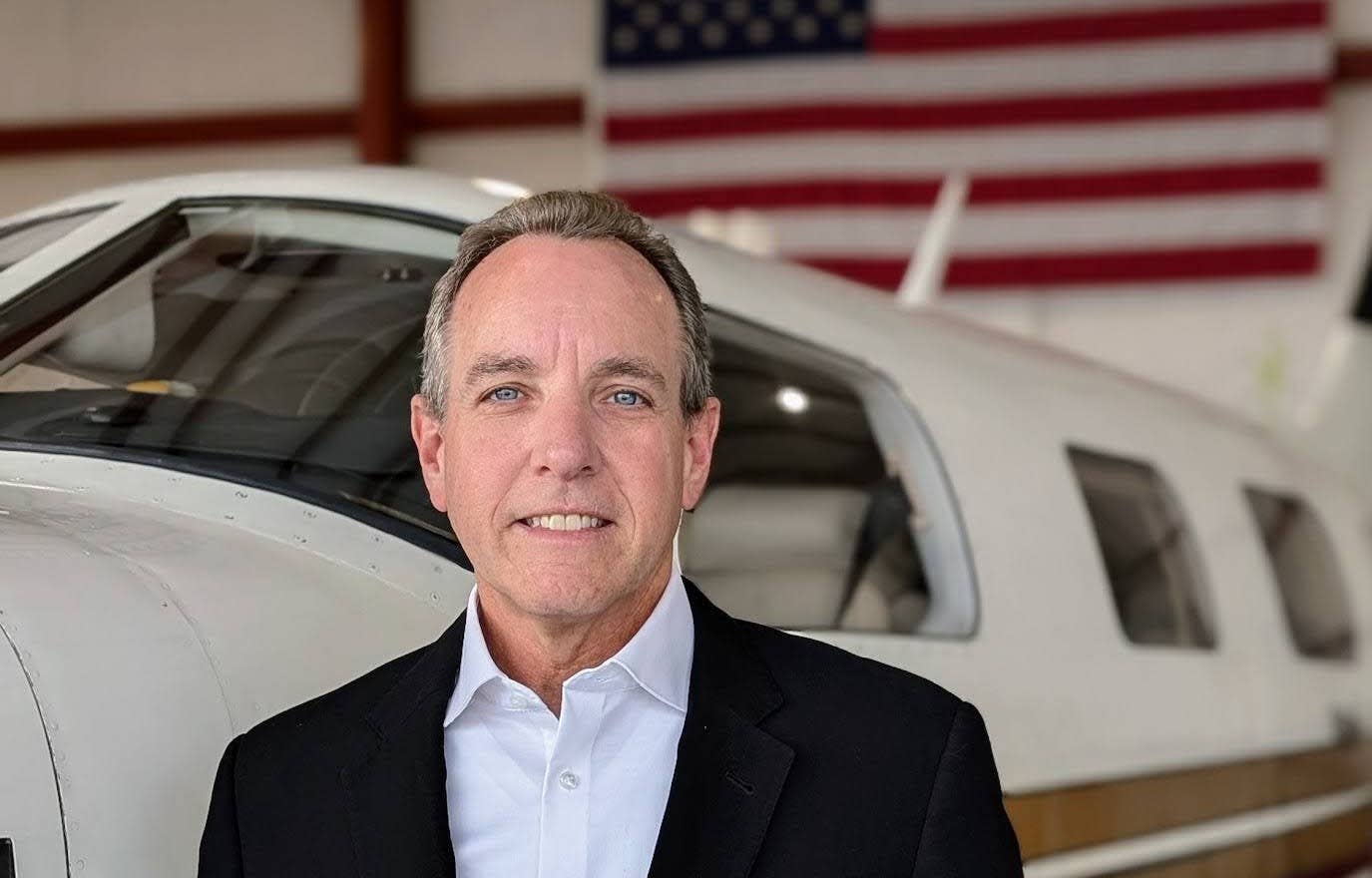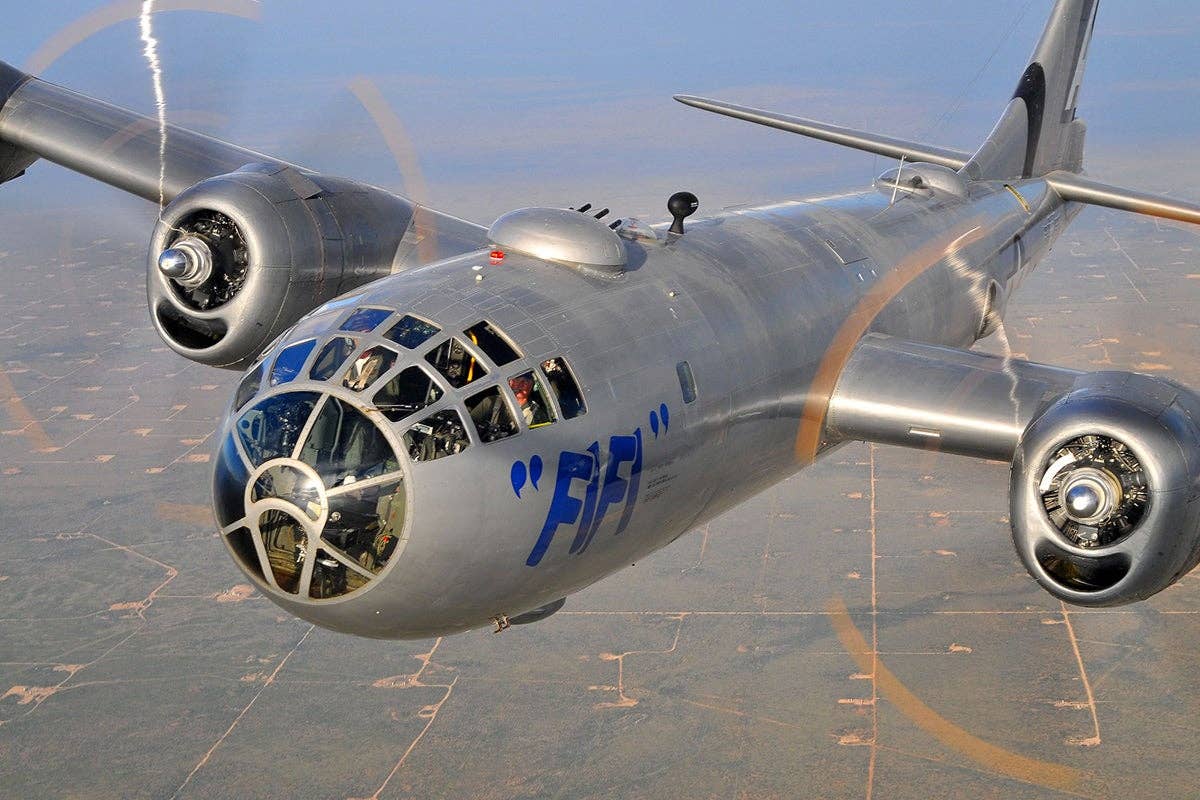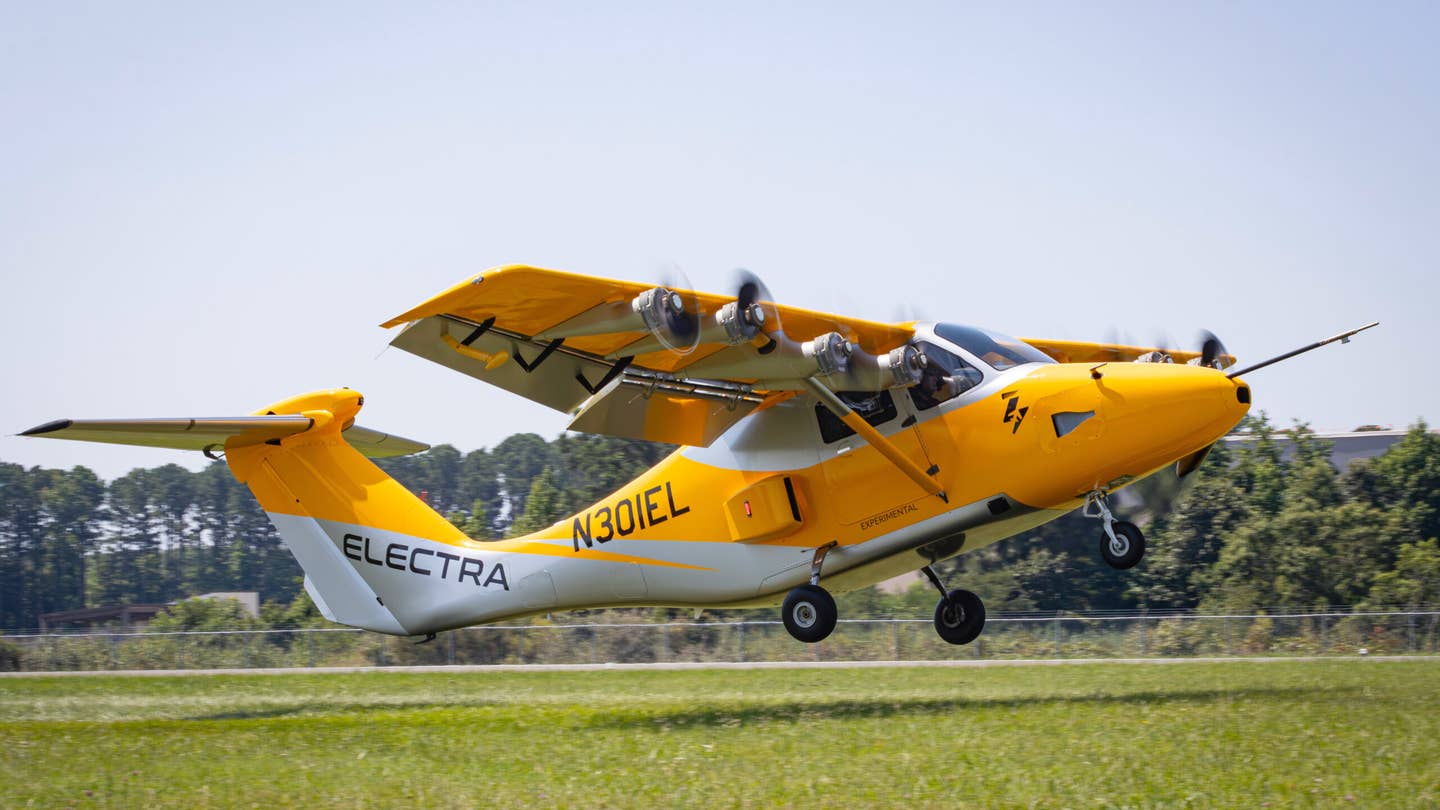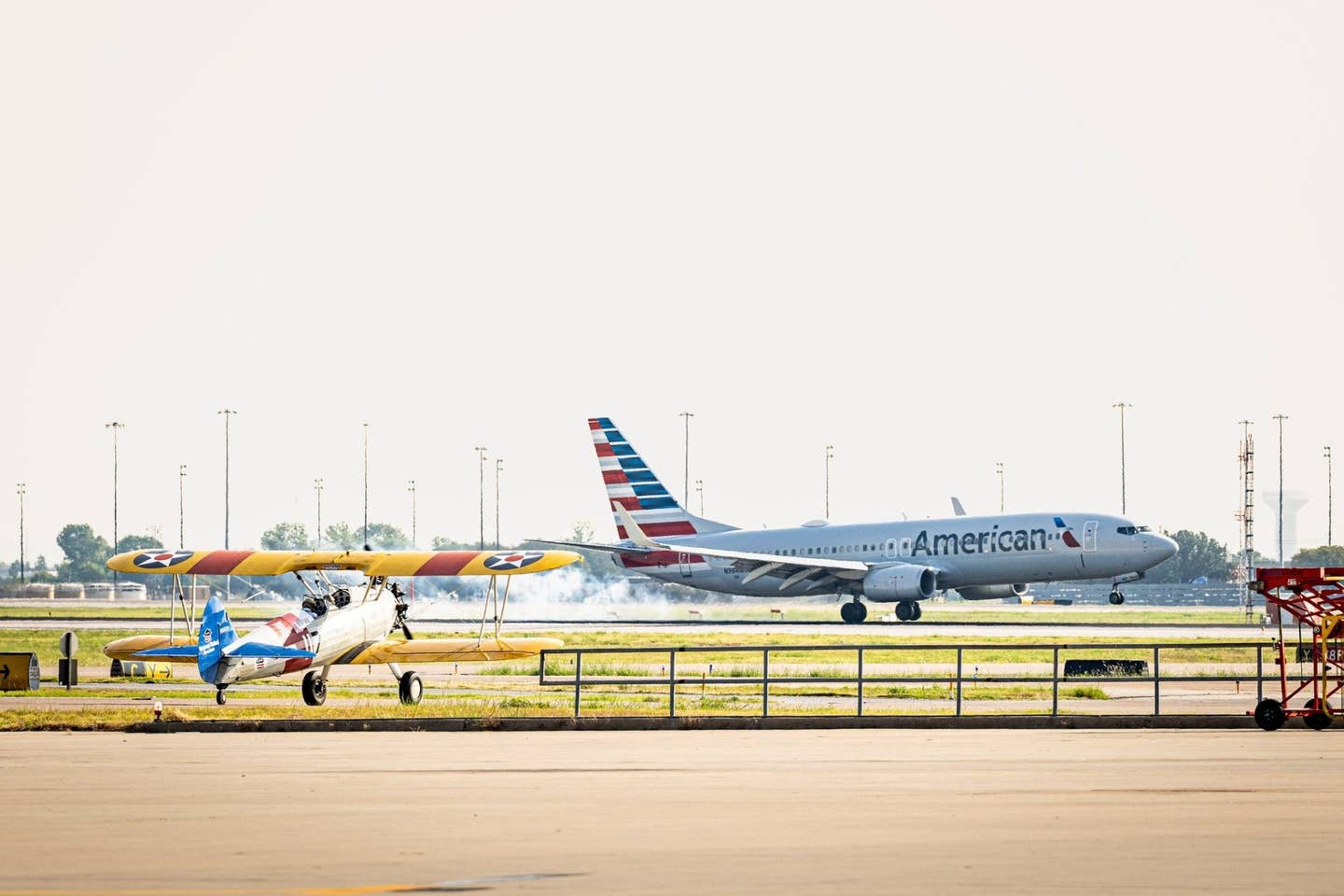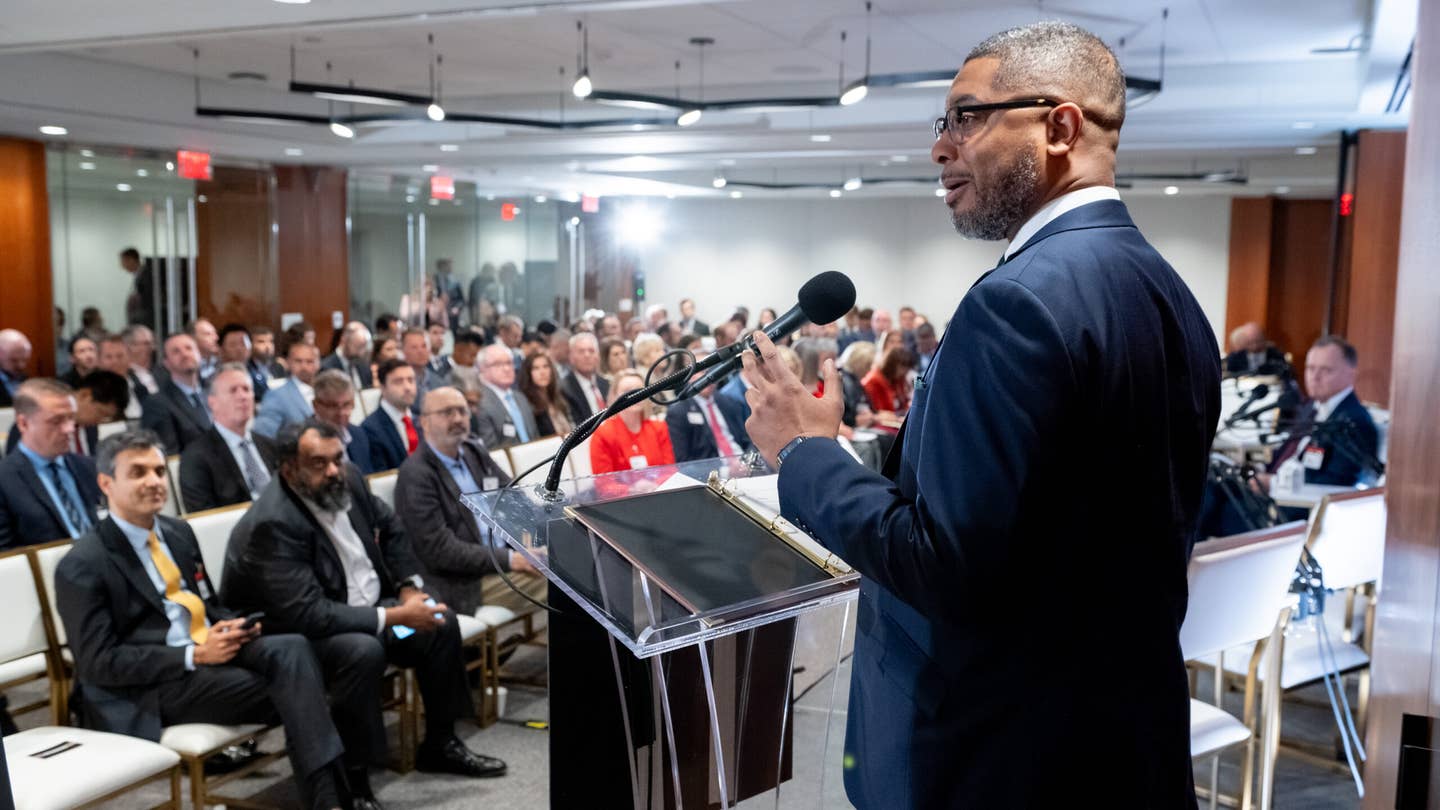Joby Lays Plans for Electric Air Taxi Network in Saudi Arabia
An agreement with Mukamalah Aviation, a subsidiary of Saudi Aramco, could include the direct sale of aircraft to the operator.
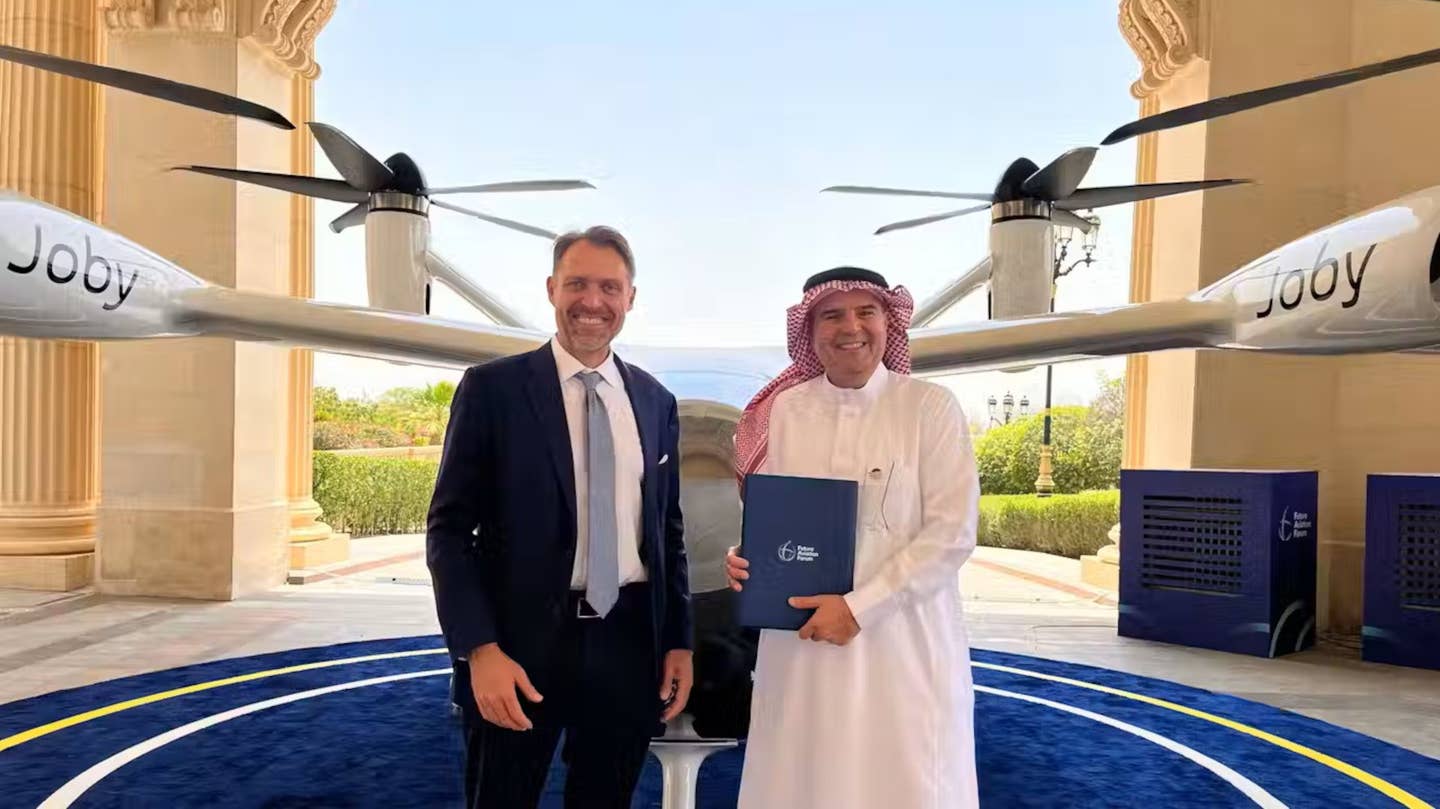
JoeBen Bevirt, founder and CEO of Joby, and Captain Khalid Al Natour, CEO of Mukamalah, signed a memorandum of understanding (MOU) at the Future Aviation Forum in Riyadh, Saudi Arabia, on Tuesday. [Courtesy: Joby Aviation]
Electric vertical takeoff and landing (eVTOL) air taxi manufacturer Joby Aviation is setting its sights on Saudi Arabia.
The manufacturer on Tuesday signed a memorandum of understanding (MOU) with Mukamalah Aviation—a subsidiary of state-owned oil and gas company Saudi Aramco that according to Joby operates the world’s largest fleet of corporate aircraft—to introduce its eVTOL air taxi in the country.
Mukamalah serves 13 airports across Saudi Arabia with multiple fleets comprising a total of 55 aircraft. The operator manages nine of these locations in addition to more than 300 onshore and offshore helipads.
JoeBen Bevirt, founder and CEO of Joby, and Captain Khalid Al Natour, CEO of Mukamalah, signed the agreement, which may culminate in the direct sale of Joby aircraft to Mukamalah, at the Future Aviation Forum in Riyadh.
The MOU builds on Joby’s agreements with the leadership of Dubai and Abu Dhabi to fly in the neighboring United Arab Emirates—which is quickly becoming a hot spot for eVTOL activity—as early as 2025.
“Saudi Arabia presents a remarkable opportunity for our technology, and the scope and scale of Mukamalah’s operations make them a natural partner for us,” said Bevirt.
Joby’s flagship air taxi is designed for a pilot to fly as many as four passengers at up to 200 mph (174 knots), with a range of 100 sm (87 nm). Flights will largely be based out of vertiports installed at locations such as airports and hotels, generating a fraction of the noise produced by helicopters, the manufacturer says.
The company intends to operate its own aircraft in markets such as the U.S. and UAE, contrasting with competitors such as Archer Aviation. But Joby says the direct sale of aircraft to operating partners, such as Mukamalah, is part of its commercialization strategy.
The agreement will include Saudi Arabia’s General Authority of Civil Aviation (GACA) and other local aviation stakeholders “to expedite Joby’s entry into the Saudi Arabia market.”
“We are proud to be working together with Joby and Mukamalah on the regulatory framework necessary to support the introduction of eVTOL aircraft,” said a GACA spokesperson. “These initiatives will help the Kingdom of Saudi Arabia meet its climate goals and steer the nation towards a sustainable future.”
Joby first announced its plans to fly in the Middle East in February, signing a definitive agreement with Dubai’s Road and Transport Authority (RTA) to launch air taxi operations in the UAE as soon as 2025.
The company said the partnership gives it “exclusive” rights to operate air taxis in the Emirate of Dubai for six years following the start of service. However, competitor Archer Aviation—which has its own plans for Dubai and the UAE—believes it will have no issue operating in the Emirate.
Joby expanded its plans for the UAE to Abu Dhabi in April, partnering with the Abu Dhabi Investment Office (ADIO) and other local stakeholders to establish its services nationwide. The company teased the possibility of air taxi routes connecting the nation’s two largest cities, offering 30-minute trips.
ADIO is also collaborating closely with Archer, EHang, and other eVTOL manufacturers eyeing service in the country, offering them financial incentives to localize manufacturing and other operations.
As Emirati leaders push to make the nation a leader in urban air mobility (UAM), it appears the Saudi government may have a similar goal.
The Arab Center Washington DC characterizes the relationship between the two countries as a “rift,” driven by a desire to become the dominant economic power in the region. Both nations rely heavily on their oil industries and have turned to tourism to diversify revenues.
Saudi Arabia made sustainability a pillar of its Vision 2030 plan to diversify the country’s oil-dependent economy. Saudi leaders hope to reach net-zero carbon emissions across all industries by 2060 and have already enacted regulations, such as around hydrogen production, to help get there.
“Over the past years, we have already invested in a more sustainable future, including taking steps in sustainable aviation fuel [SAF] testing, supporting the development of hydrogen solutions in the aviation ecosystem, and supporting the Kingdom’s green initiatives by delivering sustainable aviation solutions,” said Al Natour.
Earlier this year, The Helicopter and Jet Company, a Saudi state-owned commercial helicopter operator, partnered with Houston-based Bristow Group to explore the introduction of eVTOL aircraft in the country. Bristow has orders for as many as 50 such models from Vertical Aerospace and as many as 55 from Beta Technologies, as well as up to 50 Electra.aero hybrid-electric short takeoff and landing (eSTOL) aircraft.
German manufacturers Volocopter and Lilium are also eyeing eVTOL networks in Saudi Arabia. The former received an order for 10 VoloCity aircraft to be flown in the planned industrial, residential, and tourist zone of Neom, while the latter agreed to sell as many as 100 eVTOL jets to Saudi flag carrier Saudia.
Like this story? We think you'll also like the Future of FLYING newsletter sent every Thursday afternoon. Sign up now.

Subscribe to Our Newsletter
Get the latest FLYING stories delivered directly to your inbox


